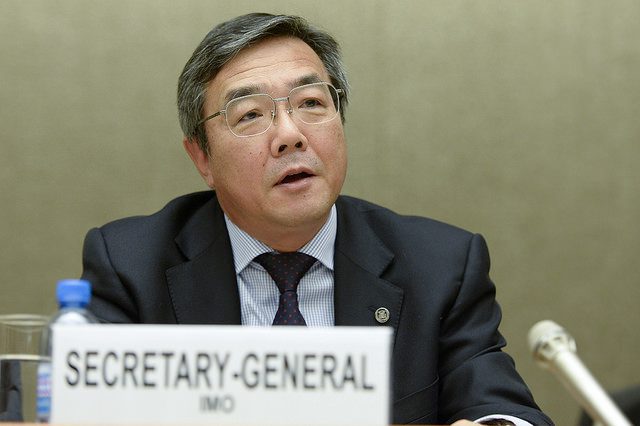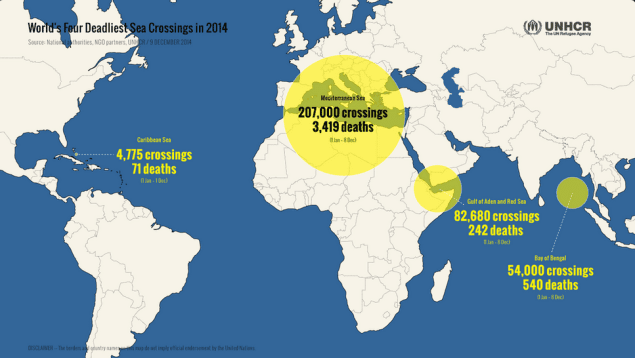Oil Surges After U.S. Sanctions on Russia’s Rosneft and Lukoil
Oil prices surged around 5% to a two-week high on Thursday after the U.S. imposed sanctions on major Russian suppliers Rosneft and Lukoil over Russia's war in Ukraine.

UNHCR/Jean-Marc Ferré
The International Maritime Organization and other UN agencies are calling for a concerted effort from the international community in response to the staggering loss of life, trauma and human rights violations affecting migrants traveling by sea.
In a joint statement Thursday, the IMO, along with the International Organization for Migration (IOM), the United Nations High Commissioner for Refugees (UNHCR), the United Nations Office on Drugs and Crime (UNODC) and the Office of the United Nations High Commissioner for Human Rights (OHCHR), called for closer cooperation between States of origin, transit and destination was critical to reducing the loss of life at sea.
The joint statement was issued following a Plenary Panel on “Boat People in the Twenty-First Century”, which took place during the seventh High Commissioner’s Dialogue on Protection Challenges this week in Geneva, Switzerland.
The statement stressed that the people undertaking these journeys were not criminals, but that those who exploit their need for protection or hope for a better future, putting lives at risk and violating human rights for profit, were acting illegally.
“Such cooperation is also critical to identifying, prosecuting and punishing the criminal gangs who are responsible for human rights abuses and for arranging sea transportation in breach of all safety regulations,” the statement said, noting that while the high frequency of incidents involving death in the Mediterranean has captured international attention, these tragedies are not only occurring in the Mediterranean, but in many locations around the globe. Behind the statistics of those rescued or lost at sea are individual stories of human tragedy and human rights violations throughout the migration process.

Speaking during the plenary panel in Geneva, IMO Secretary-General Koji Sekimizu acknowledged that the size and scale of situation in the Mediterranean Sea was becoming unmanageable, with 160,000 people rescued during 2014 by navies, coast guards and merchant vessels.
Sekimizu commended the actions of the rescuers, including the international shipping industry which had responded to the situation with the issuing of guidance, produced by the International Chamber of Shipping (ICS), on large scale rescue operations at sea.
“Throughout history, the oceans and seas have not prevented people migrating,” Sekimizu said. “But what we are talking about here is maritime migration in small boats, very unsafe, without safety regulations – sometimes carrying 500 people.”
Sekimizu noted that migrant smugglers have heavily relied on seafarers obligation, enshrined in the International Convention for the Safety of Life at Sea (SOLAS), of rescuing people in distress at sea. He said that merchant ships would continue to uphold this duty, but there was a need for prompt and predictable disembarkation procedures.
“Imagine a crew of a merchant vessel of 20 absorbing 500 people. Simply how to feed them…this is an immense problem,” Sekimizu said.
In considering solutions, Sekimizu highlighted the need to prevent people-smuggling, including the establishment of a database of the vessels involved in sea migration and the people behind them; and to consider alternatives, including regulated sea passage.

Sign up for gCaptain’s newsletter and never miss an update

Subscribe to gCaptain Daily and stay informed with the latest global maritime and offshore news
Essential news coupled with the finest maritime content sourced from across the globe.
Sign Up